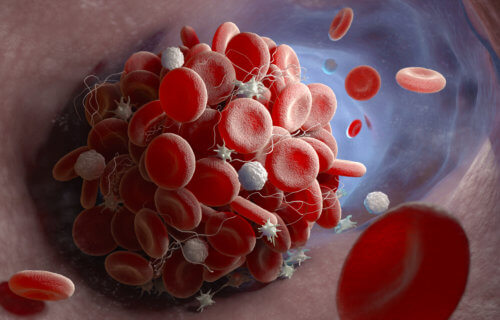WASHINGTON — In a new report, doctors reveal they have a new way to overcome the rare side-effects of COVID-19 vaccinations. Cases of blood clots forming after vaccination have led to countries pausing multiple versions of the vaccine; namely the Johnson & Johnson and AstraZeneca shots. While the Centers for Disease Control and Prevention (CDC) have warned against using a common blood thinner to treat this issue, physicians in Colorado say an alternative drug for blood-thinning may have saved a woman’s life.
The patient, a woman in her 40s, entered the emergency room at UCHealth University of Colorado Hospital 12 days after receiving the Johnson & Johnson coronavirus vaccine. In the days leading up to her hospitalization, doctors say the patient experienced worsening headaches, dizziness, and vision changes.
Physicians quickly determined she had VITT (vaccine-induced thrombotic thrombocytopenia), a rare condition resulting in blood clots in the veins of the brain and low platelet counts.
Finding an alternative to heparin
In a report by the American College of Emergency Physicians, doctors say the drug bivalirudin appears to be a useful alternative to heparin, the common anticoagulant hospitals use to treat blood clots. Unfortunately, the CDC has urged doctors to avoid using heparin in VITT cases due to possible autoimmune reactions. However, they also did not give any guidance on what to use in its place.
“This patient’s early outcomes suggest that bivalirudin may be a safe alternative to heparin in patients demonstrating a presentation consistent with VITT,” study authors write in the journal Annals of Emergency Medicine.
“Our experience shows us that these clot reactions are very rare, but they can be treated,” adds R. Todd Clark, MD, MBA, lead co-author and assistant professor of emergency medicine at the University of Colorado School of Medicine, in a media release. “Americans can feel comfortable getting vaccinated and should discuss any vaccination concerns with their doctor. Getting vaccinated is a critical step in combatting this pandemic so we can return to our normal lives.”
To the team’s knowledge, this is the first case of VITT to use bivalirudin as a blood-thinning alternative. The study notes the patient was discharged six days after arriving at the Colorado hospital. A follow-up visit three days later revealed a drop in hemoglobin levels, but there was no clinical evidence of bleeding.
Doctors also report the woman entered the E.R. on April 13, 2021 — the same day CDC officials paused use of the Johnson & Johnson vaccine. The one-shot vaccine option is now back in circulation as the worldwide vaccination process continues.
The Colorado researchers add this case may help other physicians better treat rare vaccine side-effects like VITT in the future.
